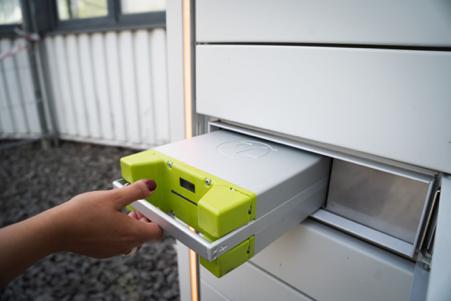How incorporating Electric Vehicles in Logistics needs another layer of Robust Logistics in itself

Logistics has always been an important factor for every business, with increasing competition, fuel cost, and impact of logistics on the environment the need to revolutionise logistics with electric vehicles is at an all-time high. According to a survey, out of the total cost for logistics 45% of it accounts for the fuel price and it is expected that in the next 4-5 year India will import double the crude oil it is importing right now, which is why businesses need to turn toward the electric delivery vehicle to cut down the cost to stay in the competition. Due to these increasing fuel prices the freight cost increases which eventually reflects an increase in the price of products. Logistics is also among the major contributors to environmental pollution which is why governments have taken initiatives to support businesses with green logistics.
The Pre-Logistics requirement for Electric Last Mile Logistics
The news of big players like Amazon and Flipkart incorporating electric delivery vehicles in their last-mile delivery has created a ripple effect, big sharks of other industries are looking into joining the bandwagon, to meet with this increasing demand the need for robust and optimised supply-side logistics is important. Logistics plays an important role in every business and its main objective is to ensure smooth transport of components and to get them to the right place at right time. The electric vehicle consists of three major components that are battery, traction motor, and controller, the logistics management team must ensure these components as well as others are sourced smoothly and should reach the manufacturing unit on time to make sure that the production does not delay.
Challenges for the Logistic System
The lithium-ion battery used in electric vehicles accounts for 40% - 50% of the vehicle's cost hence is the most expensive component in EV. Due to this fact, it becomes much more important to take proper care of the battery logistics because any small damage can cause significant costs to the manufacturers.

Here are few challenges that the logistics system faces:
- Handling and transporting of batteries need to be done carefully because they are harmful and can cause mishaps during transportation
- These batteries are sensitive to temperature, humidity, impact, and other factors that need to be taken into account while planning the logistics
- The transportation of electronic components like motors and controllers needs solid packaging to ensure that the components remain intact during their transit
The Supply Chain Lifecycle of Electric Vehicles
The raw material for batteries that is cobalt, lithium, and Nickel are sourced from raw material suppliers to the cell manufacturing unit from there on these cells are assembled at the battery pack assembler unit this the last phase and the end of this logistic segment. Similarly, there are multiple chains of each component that are utilised in the manufacturing of electric vehicles. Procuring these components from the manufacturer to the assembling unit of electric vehicles is the next phase of logistics. From here on the components are brought into the EV assembly unit where all components are assembled to make the end product.
How can we streamline this process and ensure a smooth flow of operations?
A intricate logistic solution is required to counter the above challenges and to ensure different segments of logistics are well coordinated for the smooth manufacturing of electric delivery vehicles in India. Failing to make an end-to-end robust logistics solution can lead to weak links in the chain resulting in production delay and significant cost to the company.
To further safeguard Logistics from challenges like slow information transfer due to paper records, vehicle breakdown, last-minute changes companies need to use a robust logistics management software like CargoFL, a one-stop solution for having an optimised Supply Chain Management system, boost productivity and yet Save Cost.